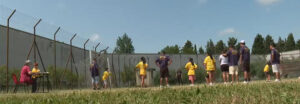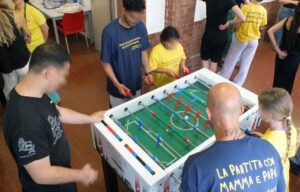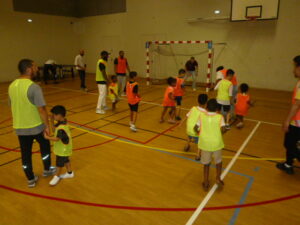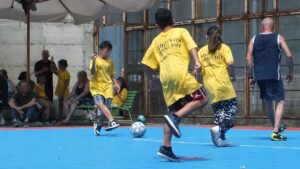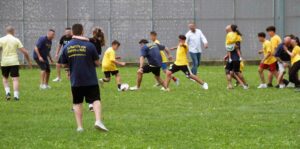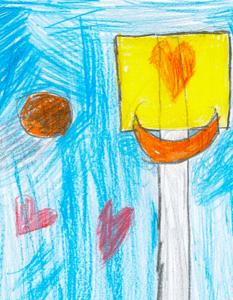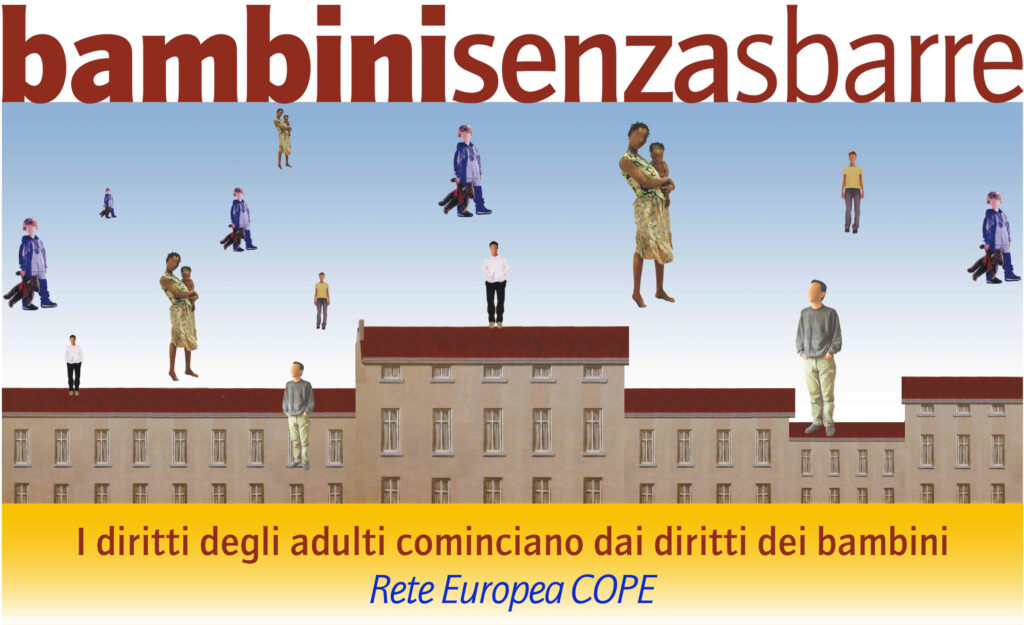On September 22, 2023, Alice Vévodová, the first female FIFA referee from the Czech Republic, (see here) attended the ‘Game with Mum & Dad’ event at Jirice Prison, Czech Republic.
The event took place in the prison’s gymnasium, where 16 children and 10 imprisoned fathers gathered for a day of sports, art workshops, board games and live music. The event was hosted by COPE member Czech Prison Fellowship, who had the opportunity to interview Alice after the event. She shared her thoughts on the experience and the needs of families impacted by parental imprisonment.
Shifting viewpoints
Alice reflected that before attending the event, she had not fully grasped the complexities families endure when a parent is imprisoned: “It was eye-opening to see how one person’s mistake can impact an entire family, particularly the children’s mental health and their relationship with the imprisoned parent” Alice’s observation showed how the challenges that children face when a parent goes to prison are a blind spot for most governments — and indeed a blindspot in the awareness of most people. The movement championing children’s rights when their parent is in prison is a growing one, and yet public awareness is still lagging. Most advocacy efforts tend to be spent getting this issue recognised; it’s about shifting mentalities, reducing stigma and opening up opportunities for positive public awareness raising.
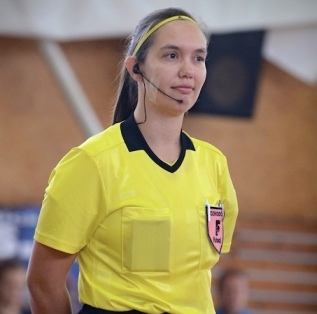
Alice Vévodová, Czech Republic (©Michal Pavlík, Football association of Czech Republic)
“I realised the importance for children to spend time together with their parents“
Her participation in the event was a learning experience: “I’m truly grateful to have participated in this event, as it allowed me to meet these families and hear their stories firsthand. It made me realise the importance for children to spend time together with their parents and underscored our need to find ways to support them during these difficult times.”
An emotional reunion
Reuniting families after long separation can be deeply emotional for both children and parents. At the GWMD event, the joy of reconnection was clear, but so was the rarity of these reunions.
Children rarely get time with their imprisoned parents, making each moment both precious and intense.
As Alice observed, “Seeing the children and families reunite with their fathers was incredibly emotional … The most emotional moment was when the children and families arrived and reunited with their fathers. One father’s family didn’t arrive on time and you could see how much that affected him. Thankfully, they arrived a bit later, and in the end, that story had a happy conclusion.”
More frequent, child-focused activities like those planned by this campaign, along with longer visiting hours and family-friendly spaces, can be a very effective tool to strengthen and maintain the child-parent bond. GWMD — a global iniative where children get to play sport and other games with their parents in prison — emphasises the need for policies that support frequent, meaningful interactions to uphold every child’s right to a strong, nurturing relationship with their parent. Providing opportunities for play and shared meals can restore a sense of normalcy for families impacted by imprisonment, reinforcing these essential connections.
Meeting the needs of families
“We can focus on supporting them in strenghtening their relationships.”
Alice also addressed the deeper needs of families impacted by imprisonment, starting with financial stability. As she observed, “They definitely need financial support, as that is the foundation to establish a sense of security. Once that’s established, we can focus on providing emotional support to children and parents, supporting them in strenghtening their relationships.” Alice’s insights highlight the importance of meeting these fundamental needs to create an environment where children and parents can build resilient relationships. Her words remind us that supporting families impacted by imprisonment requires a comprehensive, long-term approach—not just short-term solutions.
